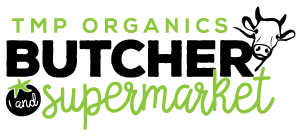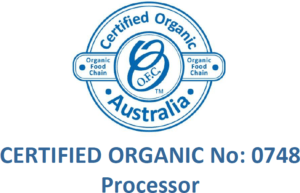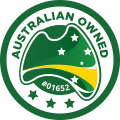Australians can rest assured that Australian Certified Organic Chickens are some of the healthiest animals in the world, with a diet healthier and more organic than most humans.
The BFA, which sets the Australian Organic Standard used by the majority of industry operators in Australia, says that some members and consumers have rightly expressed concern and confusion over media reports, based on some misleading and inflammatory claims, that synthetic ingredients are to be permitted in poultry feeds in Australia.
The reality is that all organic standards of the world, including the national standard, and the more recently released Standards Australia standard (AS 6000) do not allow synthetic inputs.
Organic chickens are restricted to a diet of no less than 95% organic feed (including an unconditional ban on GMOs, antibiotics and other growth promoting hormones), while organic standards stipulate that organic livestock must be allowed to roam freely on certified organic rangeland and pasture.
This rule is not limited to chicken production alone. The base Australian organic standards require 100% organic ingredients, where available, in all food products (including animal feeds), and only up to 5% allowance of a highly scrutinised list of ingredients where organic sources are not yet available. In the case where a manufactured additive (e.g. vitamin or mineral) is deemed required due to no natural source, this generally comes with a phase out period to see an industry sector through until it can source a naturally derived alternative.
Dr Andrew Monk, BFA standards convenor, says that in the case of certified organic poultry, at this point in time the supply of sufficient levels of protein for a balanced diet cannot always be provided by organic feed alone.
“To ensure the health and welfare of the animal, the most recognised organic standards around the world have a very restricted provision for the use of items that are deemed by the organic sector as essential for the health and welfare of the animal, including vitamins, amino acids and minerals …- when an organic alternative cannot be sourced.”
“The list is based on the essential need to deliver what is viewed as core aims of organic production such as animal welfare, sustainable farming – and the production of clean and safe foods,” he said. “While methionine is naturally present in organic poultry feed, the amount is sometimes not sufficient to maintain the optimal health of the birds, and in our chicken industry’s case there remains an insufficient organic protein source – similar to the EU and countries like the U.S.A and Japan,” Dr monk said.
On an international level, U.S.A. and Japan already permit the amino acid methionine, with a plan to phase it out by 2015. This is the same approach the BFA are proposing for the Standards Australia AS6000 in order to allow time for organic operators to source an alternative organic supply and for greater research and development into an alternative source of protein to ensure the health and wellbeing of the animals.
The BFA has gone to great lengths to demonstrate the democratic standards setting process it sets for ensuring the whole supply chain, including consumers, have input into standards and ensuring transparency in this process in Australia. This was recognised by consumer watchdog Choice earlier this year, which named BFA subsidiary company Australian Certified Organic as the Best Food Endorsement Program 2010.
A new public forum on the BFA’s website is a means for consumers to ask questions of organic nutritionists, the standards advisory group, farmers, and industry participants.


